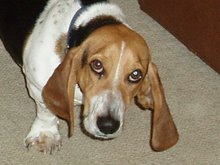On picking the "electable" candidate
Check out SteveT's post from MyManMitt, which also references a NRO article from K-Lo:
Are you basing who you support today on who is the most electable according to national polls?If you are, perhaps a little electoral history might help you to reconsider –Kathyrn Lopez at National Review Online helps bring a little reality into the situation:
January 10, 1980 Gallup Poll
Carter 63%, Reagan 32%
There is also an interesting quote from that time that sounds so eerily similar to what we hear today from so many,
“Republican candidate John Anderson, a dark horse, said the other day that if the Republicans nominate Mr. Reagan it's political suicide. He's right. Most polls show that, going head-to-head against Mr. Carter, Mr. Reagan would lose by 2-1. The former California governor would be the Barry Goldwater of 1980.”
Just in case you missed it here are the results of that election:
November 1980 Presidential Vote:
Reagan 50.7%, Carter 41.0%, Anderson 6.6%
In my lifetime, I can recount many instances where early national polling has shown itself to be less than useful. In the summer and fall of 1991, George H. W. Bush was leading all Democrats by 20 points or more. The pundits all saw Bush cruising to reelection the following year. Obviously, Bush’s second term never arrived. In 1995, US Senator Robert Dole continuously led President Clinton in head to head matchups. Throughout that year we were subjected to arguments from Dole supporters, “Bob Dole can beat Clinton. Let’s win this thing!” Even as late as January of 1996, one poll had him ahead by several points. Of course, Dole lost that race by about 8 percent that November. When, in 1999 the Presidential race was heating up, many saw George W. Bush as the only hope. He led the polls over Al Gore all year and even had a substantial lead in the summer of 2000. As almost all of us now know, he won that race by perhaps the smallest margin possible. Perhaps a less well known, but stronger candidate might have been able to win a clear victory against the hapless Al Gore? Even polling a few months out can be less than valuable. In August 1988, Mike Dukakis was leading George H. W. Bush by 17 points in one poll. Of course Bush went on to win that race by 8 percent.
As national polling measures little more than name recognition at this point in the game, it is important to look at other indicators to gauge electablity. When the decision comes down to who I support, current head to head poll numbers do not factor in. I look for someone who has shown proven leadership, projects optimism, fights for things that I believe in, and can unite the party. In my view, the one candidate that matches all of the criteria is Mitt Romney.
Link to Lopez article:
http://corner.nationalreview.com/post/?q=MTc4YWE0YWIxNWI4ODEzZWFlYmM3MWU4ZDdhODQ0NGM=
I would also place Mitt at the head of the line for meeting these criteria. That said, I think that Huckabee, and to a lesser extent, Giuliani and McCain, meet these criteria as well.
Always sniffing for the truth

Contributors
Links
- Love and Lunchmeat
- Long Island Prepper
- Fredo's Mets Blog
- Continental Sausage
- Human Events
- Maker's Mark
- Michelle Malkin
- National Review
- Newt Gingrich
- NRO
- Pro Ecclesia
- Ralfy's Whisky Reviews
- Red Albany
- Res Publica et Cetera
- Sour Mash Manifesto
- Straight Bourbon
- Taki Mag
- The American Conservative
- The American Spectator
- The Anchoress Online
- The Politico
- The Weekly Standard
- Wild Turkey Bourbon
Blog Archive
-
▼
2007
(477)
-
▼
September
(36)
- Huckabee News
- Newt not running
- A nasty bug
- General Lies and Power
- Looks like someone forgot to write his check
- Mission Accomplished...
- Clintons kill GQ story
- NY, NY
- Columbia
- On picking the "electable" candidate
- Stop the madness
- Best. Post. Ever.
- Newt speculation with a ring of truth
- Giuliani throws out a big idea.
- The Great Debate
- Mitt on the specifics
- '08
- Tony Blankley begs for Newt
- Fred's early bumbles
- It speaks for itself
- Romney
- As if I needed...
- Drudge: "DOWD, RICH FREED: NY TIMES to end paid In...
- France mans up
- A sports departure
- On the decline of party power, and the rise of adv...
- More Newt
- Rudy and the politics of abortion
- Paging Jay Cost!
- Senate swinging left
- Why'd I click on Drudge?
- Never forget
- I normally don't find endorsements very meaningful,
- Bill for Hill's Veep?
- Dems target Mitt
- ...I have a secret plan to make all terrorists spo...
-
▼
September
(36)
1 comments:
BTW, looks like Mitt may be starting to answer Tony Blankley's call to arms. See story here about MI speeches.